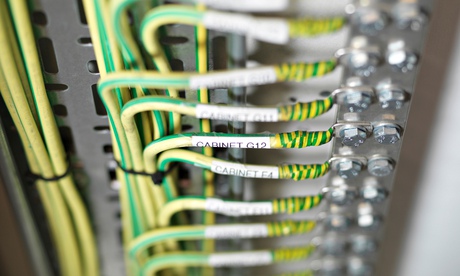
Confidential patient information is to be housed in a network of regional centres across the country, in a proposal that critics say amounts to an attempt to reintroduce the national database of medical records that was abandoned earlier this year.
Harvested from GP and hospital records, medical data covering the entire population – and including information such as mental health conditions, diseases, as well as smoking and drinking habits – would be uploaded to the new “accredited safe havens” (Ash) scheme.
In August, the Department of Health said Ash was only intended to provide access to records that have been stripped of personal details.
However, patient watchdogs have raised the alarm over fears that the new system replicates all the worst aspects of the “care.data” scheme, which was a plan to digitise and centrally store the entire medical records of England in a single database.
Care.data was delayed earlier this year, weeks before it was due to be rolled out nationwide – which would mean medical records uploaded from almost 9,000 GPs surgeries – after privacy concerns over what the patient data might be used for and where it might end up.
Privacy campaigners say the plan for the regional centres revives talk of “pseudonymised information” being extracted from medical records. That refers to a process whereby some personal identifiers are removed but not enough to make information completely anonymous.
Healthwatch England, set up by the coalition as a consumer champion in health, said that in planning a series of regional data centres “officials have not learnt the lessons of the controversial care.data programme”.
Anna Bradley, chair of Healthwatch England, said: “We applaud the secretary of state for taking the time to listen to and address patients’ concerns over care.data. The assurances he put in place gave Healthwatch England more confidence in the way GP records will be used and how the right to object to having our own files shared will be implemented.
“But these additional assurances must be extended to all health and social care data sharing initiatives otherwise the Accredited Safe Havens project will end up being seen as ‘Big Brother’s little brother’. The public need to know that if they decide to opt-out of one medical record sharing programme, their wishes will be respected across all such projects.”
Healthwatch said that ministers now “risks facing similar backlash unless same additional assurances for care.data applied to all data sharing initiatives”.
Yesterday it was announced that 265 GP surgeries would continue trial the care.data scheme. Those who sign up to the pilots will have to send individual letters, emails or texts to all their patients.
GPs voted against care.data being rolled out across the country on the grounds that patients had to opt out of the system rather than opting in – and called for confidential patient data to be anonymised before it leaves surgeries. The NHS however has decided patients will still have to opt out rather than opt in to the scheme.
Tim Kelsey, NHS England national director for patients and information, said: “Since February we have been listening to the views of the public, GPs and other important stakeholders to hear their concerns about data sharing.”
“We have heard, loud and clear, that we need to be clearer about the care.data programme and that we need to provide more support to GPs to communicate the benefits and the risks of data sharing with their patients, including their right to opt out.”

